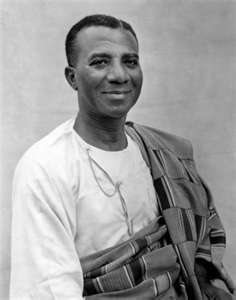
A few years back, a Malagasy friend of mine was telling me how upset he had been to find out that his name’s short version, Togo, had been made by Americans to sound like ‘to-go‘ as in ‘to-go containers‘ as opposed to ‘Togo‘ (pronounce ‘Tow – go’ or ‘Taw -go’) as it was supposed to be. This got me thinking about the name of one of the smallest countries in Africa, Togo, which had undoubtedly also gone through that transformation to sound like ‘to-go containers.’ Well, do you think the meaning of Togo could in some way be related to leftover containers or food-on-the-run?

Togo lies in the Bight of Benin, surrounded by Ghana in the west; Benin in the east; and Burkina Faso in the north. To many, the name Togo stands for “land where lagoons lie“. In reality, the name Togo was the name of a small village Togodo which means in the Ewe language, “the land (or city) beyond the cliff” or “land on the other side of the shore.” This became Togoville, a town and canton in southern Togo, lying on the northern shore of Lake Togo; it was originally known as Togo. The country took its name from the town of Togoville when Gustav Nachtigal signed a treaty with the town’s chief, Mlapa III, on 5 July 1884, from which Germany claimed ownership over what became Togo. Togoland, a German colony, was born. The village which gave its name to the country, mean originally “city or land beyond the cliff” and not “city beyond the river.” It is in reality located on the edge of a very shallow lagoon, whose name is Lake Togo, which had the effect of misleading many people about the origin of the word.

Archaeological finds indicate that ancient tribes which inhabited the area were able to produce pottery and process iron. From the 11th to the 16th century, various tribes entered the region from all directions. From the 16th century to the 18th century, the coastal region was a major trading center for Europeans to search for slaves, earning Togo and the surrounding region the name “The Slave Coast“. In 1884, a treaty was signed at Togoville with King Mlapa III, whereby Germany claimed a protectorate over a stretch of territory along the coast and gradually extended its control inland; its borders were defined after the capture of hinterland by German forces and signing agreements with France and Britain. In 1905, it officially became the German colony of Togoland. After Germany lost the First World War, the land was divided between France and Great Britain to be ruled as mandates. After World War II, these mandates became UN Trust Territories. In 1957, the residents of British Togoland voted to join the Gold Coast as part of the new independent nation of Ghana; while French Togoland became an autonomous republic within the French Union in 1959, as France (as always) retained the right to control the defense, foreign relations and finances. The Togolese Republic was proclaimed on 27 April 1960. In the first presidential elections in 1961, Sylvanus Olympio became the first president of the country. Since the coup that led to his assassination in 1963, Togo has been ruled 3 presidents, the most notorious being Olympio’s murderer Gnassingbé Eyadéma, who ruled Togo for 38 years, and after his passing, his son Faure Gnassingbé has now been president.

The coast of Togo in the Gulf of Guinea is 56 km long and consists of lagoons with sandy beaches; thus the reason why people think its name is associated with lagoons and mean “land where lagoons lie“. If you ever visit Togo, do not forget to check out its lagoons, its sandy beaches, and above all its people.


That was a good history lesson. I’ve always wondered what the name of the country meant. There are English speakers who seriously pronounce that country’s name like a to-go container? WOW….just wow. [facepalms]
LikeLike
I thanks to understand more about the history and our forefathers began
LikeLike
Pingback: Africa's Resilient Native Languages | Scam Buzz